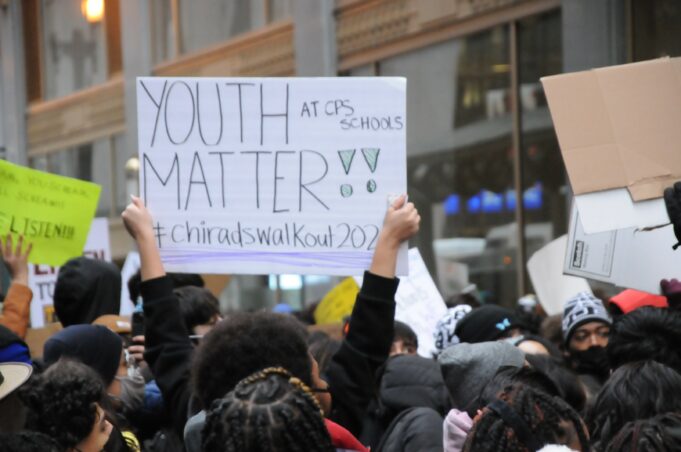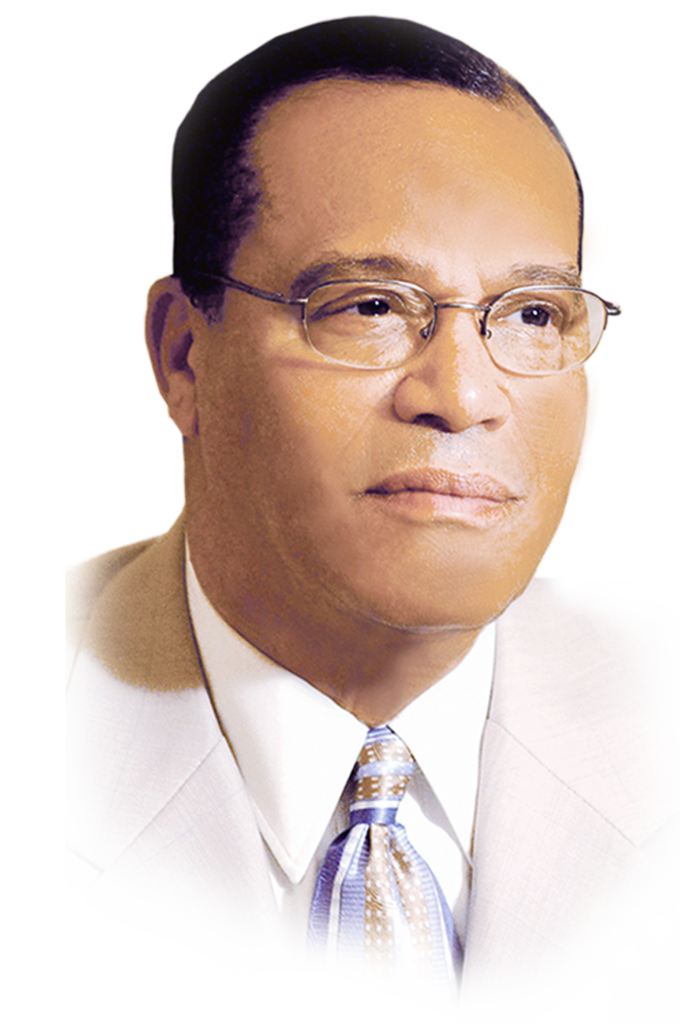
“Our fearless Black youth are ready to move for liberation. It is not necessarily that they have to move the giants or Caucasian people who have become like a mountain in the eyes of Black people, but, like Jesus said, ‘If you have faith the grain of a mustard seed, you could say to the mountain, be removed.’ What Jesus was talking about is the mountain that you have erected or that Allah (God) has allowed to be erected as a powerful symbol in front of you. God wants you to go, and if you had faith the grain of a mustard seed, you could say to the mountain, ‘be removed.’ And that’s the difference with our youth today.”
–Minister Louis Farrakhan, Black Youth: What Must Be Done
The current generation of young Black people is known for its fearlessness in the face of the longstanding oppression Black people have suffered in America since day one. The Honorable Minister Louis Farrakhan of the Nation of Islam has dubbed them the “Joshua Generation,” noting that “the future of Black people is really in the hands of these courageous, dynamic, powerful Black youth.”
“There is a scripture in the Qur’an that says Moses sent Joshua to spy out the land that God had promised. But when he went to spy out the land, the land was filled with giants. When the report came back that the land was filled with giants, the children of Israel did not want to go and take the land, even if God were with them. They didn’t have the heart to stand up against the giants,” the Minister said during an address on Black youth.
“But,” he said, “the children were more of the mind and spirit and determination to challenge whatever was in their way.”
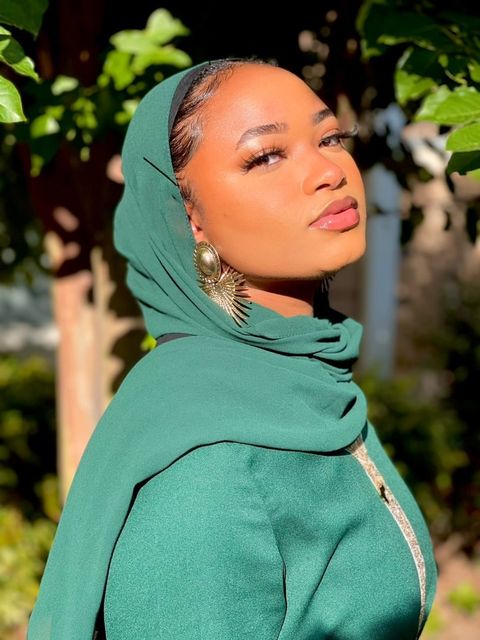
Nzinga Muhammad, a 22-year-old from Rochester, New York, said she has never heard anyone refer to a specific generation in a positive light via scripture other than Minister Farrakhan.
“As much as people talk about young people in a degrading and disappointing light, I’ve never heard of someone except the Minister using scripture to uplift young people in a way that aligns with a divine purpose,” she told The Final Call. “It gives inspiration and hope to me and my peers, whether they’re born in the Nation or not, to see our divinity.”
Student Minister Ishmael Muhammad, National Assistant to Minister Farrakhan, explained to The Final Call what exactly it means to be the “Joshua Generation.”
After the Children of Israel’s refusal to go into the land promised, due to fear and faithlessness, God let them wander in the wilderness for 40 years. Joshua was then appointed by God to lead the people.
“God is telling him, ‘Be strong and of good courage. Be strong and courageous,’” Min. Ishmael Muhammad said. God also told Joshua to obey the law given by Moses, and by obeying the law, he would prosper and be successful.
Min. Ishmael Muhammad explained that for the current generation to prosper and be successful, the fearlessness of the spirit has to be balanced with the righteousness of God’s law.
“This generation has the requisite spirit to challenge the forces of evil to take possession of what God is promising the Black man and woman of America, but we have to be … of good courage and be strong. Strong here is not muscle. Strong here is faith,” he said. “You have to have the requisite faith in order to be a man or a woman of courage.”
The key is obeying the law of God, he added.
“So, this generation is a generation of promise and fulfillment, but we do not live our lives by a moral standard. We are totally living a life in transgression to Divine Law, God’s law, and we are in rebellion, which means that if we do not turn from our wicked ways and live the life that God would have us to live, then we can’t claim the Joshua Generation,” he said. “We have to prove that we are the Joshua Generation by following Joshua, obeying the commandments of Joshua, the Messiah, the Honorable Minister Louis Farrakhan.”
He also explained that the Joshua Generation isn’t just about age and said it applies to everyone who believes in the present-day Joshua, the Honorable Minister Louis Farrakhan.
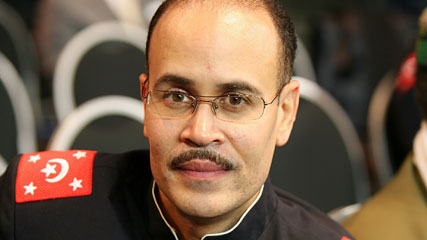
On May 16, Minister Farrakhan introduced the Nation of Islam’s 13-member Executive Council on the WVON 1690 AM morning show. He told the show’s host and longtime activist Eddie Reed, “I have taught you well by the Grace of God. Millions of words now are out there for us to feed on. So, I want to see now a new generation rise in that word and they are coming up fast.”
He continued: “Every one of these that you heard, including Brother Student Minister Ishmael. He’s got a cadre of young ministers, male and female, studying now and growing in the study—and so soon you will see them. Soon you will hear them. And you will hear Elijah coming through them all or they won’t speak at all. I did not live my life and offer my life for wicked, corrupt people to come to me and say they want to help me; but they really want to help themselves and use my teacher’s name to deceive the people.”
Min. Ishmael Muhammad described the appointment of the Council as unprecedented and a “divine order for the protection of a Nation that belongs to God.”
“It’s unprecedented, especially in the history of Black organizations,” he said. “After the great teacher or leader was off the scene, individuals tried to come behind that great leader or teacher and did the best that they could. But when you have such a great leader as we have and teacher and guide that is from God, then who can step in those shoes?”
He noted that in the Council, those within the Nation of Islam look to the reflection of Min. Farrakhan, the man that many have fallen in love with.
The long fight for freedom
“I think we’ve done a tremendous job as far as mentoring and trying to help guide this younger generation, so they won’t make the same mistakes that we did,” said longtime activist Najee Ali, 59, to The Final Call. “And that includes not arguing over small things but looking at the bigger picture, that at the end of the day, we all want the same thing for Black people, and that’s us having the best quality of life.”
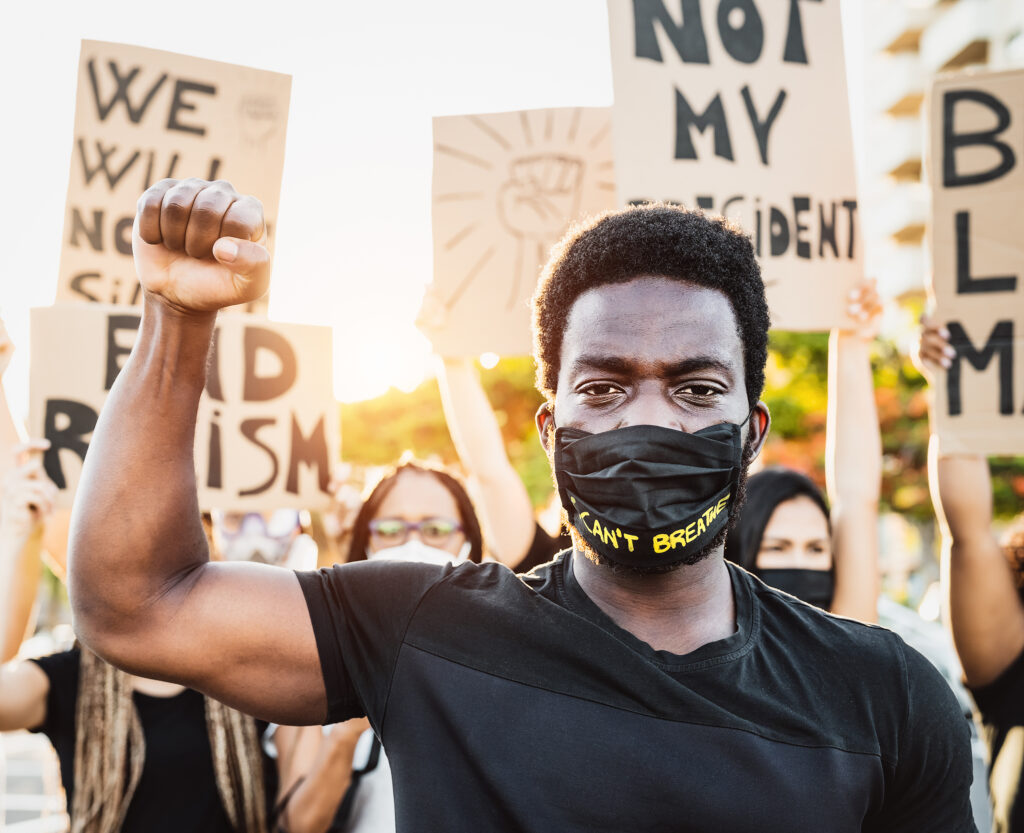
He advises young people to not cut off their association with their community and fellow activists because of a disagreement on tactics and techniques.
“As long as people are working and activists are engaged in the struggle, they don’t have time to argue and fight with each other about who’s right and who’s wrong,” he said.
He explained the best way to ensure longevity is to prepare young people to be ready to serve and to grab the baton when it’s passed to them. “And it’s critical that young people respect and honor the leaders who have passed on before them whose shoulders they stand on, from the Honorable Elijah Muhammad to Dr. (Martin Luther) King,” he added.
Born in 1982, Sanyika Bryant is an older millennial and the political education organizer with the Black Organizing Project. He noted three options that have been within Black movements from the very beginning: getting back to Africa, integration into the dominant society and self-government. He leans toward self-government.
“I would say it’s part of our culture to fight for liberation. And we’re denying our culture and doing a disservice to our ancestors when we step outside of that,” he said.
The hardest lesson longtime activist Harry “Spike” Moss has learned is the level of hatred in America. He told The Final Call he has been fighting police brutality cases since 1966. He teaches young people the importance of calling themselves “freedom fighters.”
“Because once we get freedom, we’ll have the right to vote. We’ll have the right to choose. We’ll have the jobs that we should deserve. We’ll have the businesses that we should own, once we’re free and treated as a free people in the hells of North America,” said the Minneapolis-based activist.
He advised young people to also fight politically by creating a Black Independent National Freedom party. But the most important thing is Black people learning to love each other again, he said, describing how the generation is destroying itself with guns and drugs.
“Those that got that love between them, that’s the glue. You build the new movement,” he said.
Loyalty and resilience
Zakiyyah Muhammad, 26, from Macon, Georgia, noted how many people describe the current generation of Black youth as the worst generation.
“They think we don’t vote enough. They think we’re lazy. They think we don’t hold on to the ideas of the White man’s world. They think that we need to go along to get along. Just everything that is bad,” she said. She explained that Minister Farrakhan “sees a lot in our generation when a lot of people have written us off.”
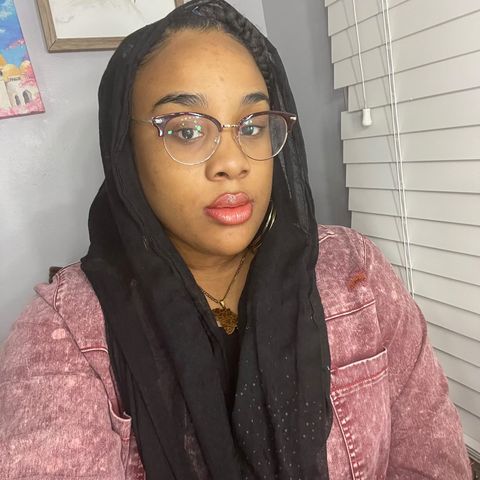
To her, being a part of the Joshua Generation means taking the good from the previous generations, analyzing the not so good and fulfilling what previous generations fought and died for.
She and Nzinga Muhammad are students in the ministry class set up in the various cities of the Nation of Islam. Nzinga Muhammad said the Joshua Generation is also about breaking generational curses, such as abuse, and taking back “what our forefathers would have wanted, which is resilience.” But she noted her dislike for the phrase, “we are not our ancestors,” because “we can’t say we’re kings and queens and then say we’re not our ancestors. That doesn’t add up. We have to also acknowledge the warrior spirits that are part of our ancestral lineage,” she said.
“Those same ancestors who for (382) days completely turned over a busing system, and you can’t even go two weeks with boycotting Starbucks in 2022,” added Nzinga Muhammad.
As time passes, Zakiyyah Muhammad said the older generation has to first want to pass the baton to youth, but also has to trust the younger generations.
“To this day, trauma lives in our DNA,” Nzinga Muhammad added. “Literally to this day, we are walking with ancestral trauma. And so, when it comes to passing the baton, there also comes a responsibility in understanding what exactly you’re passing on.”
The two young women noted that there must be intergenerational patience and understanding. When they look at the older generations, they see loyalty and resilience.
“No matter what was going on or what was happening in their own personal lives, at the end of the day, they were so in love with their people or with whatever cause that they were working against oppression—no matter what was happening, they kept fighting,” Zakiyyah Muhammad said.
They also referenced the women of the movement.
“Nothing moves without Black women. Nothing. Not a Civil Rights Movement, not a Nation of Islam, not a Black Panther. Nothing moves,” Nzinga Muhammad said.
“Nothing is going to move, at least not successfully or for a long time, without a Black woman somewhere, either that’s in a corner, on a rostrum, selling bean pies, making bean pie. Whether that is Black women typing something up or writing Holy Qur’an verses for the Honorable Elijah Muhammad when he was in prison,” she added.
She wanted to give a shout out to the Black women who came before her, because they had to undergo both racist systems and sexist systems.
The two young women acknowledged that their generation is doing better when it comes to healing and mental health.
“You can’t build a nation of God and you’re still trying to fight demons,” Nzinga Muhammad said.
Student Min. Ishmael Muhammad noted that the current generation of Black youth is under assault, because the enemy knows it is a fearless generation.
“The enemy has created such circumstances that would cause our own self-destruction and blind you to ignorance, despair, drugs, alcohol, blind you to the light that is present in the darkness that is the light of God through the Honorable Minister Louis Farrakhan,” he said.
“They don’t want you to hear him. They don’t want you to come in contact with him. Because if you do, you’ll find your purpose in life and you’ll fall away from who? Satan. And then you will be about the business of establishing a nation of your own.”
(Read Part 1 of The Joshua Generation in The Final Call, Vol. 41 No. 47)












